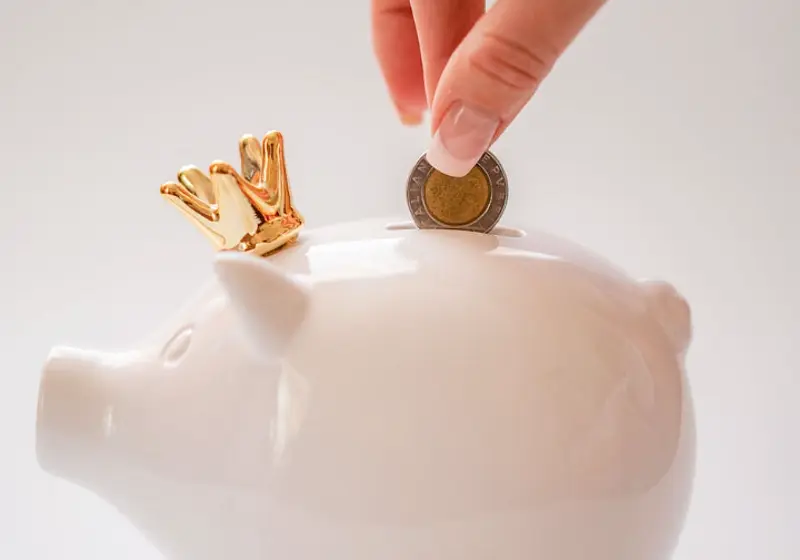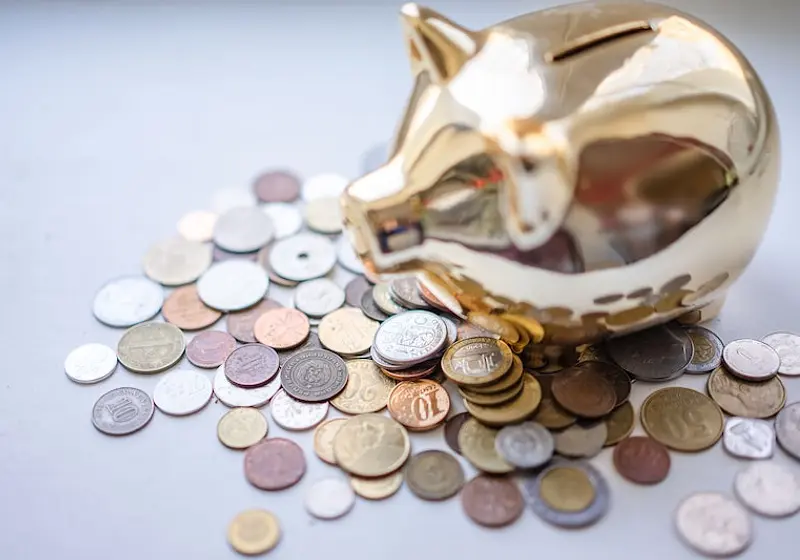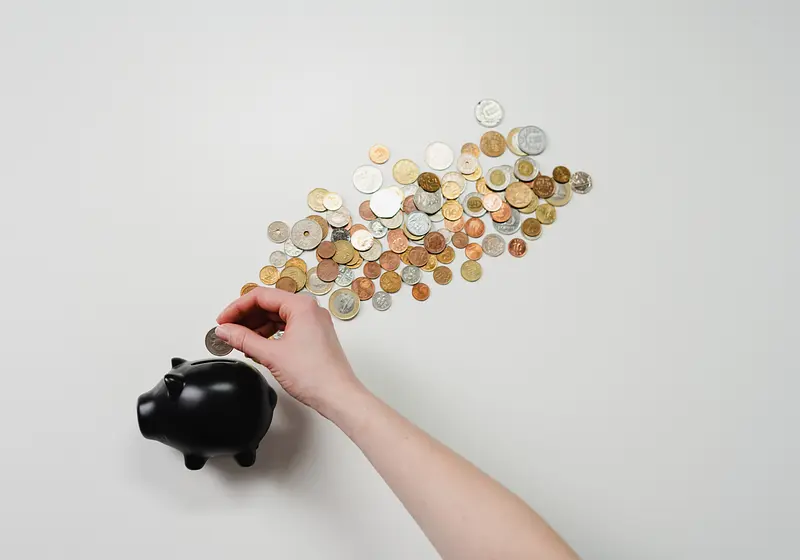We all dream of being comfortable with money in different ways. Some people dream of being able to travel worldwide, others dream of having multiple advanced degrees and others want to laze around in their house without doing anything else. These are all examples of being comfortable financially depending on who's explaining it.
Now, whether you have some plan in hand or you're simply waiting to get a job and save up until you're older, there's no reason you can't start planning your rich life now. Below are several ways you can start.

Source: Unsplash, Micheile Henderson
Let us slide into your dms 🥰
Get notified of top trending articles like this one every week! (we won't spam you)1. Open a Savings account
This is a very obvious one. If you're in your late teens and early twenties, you've probably opened a bank account recently. The main reason for having an account is to protect any money you have rather than leaving it lying around in cash.
No more keeping our cash in cute little money boxes and being amazed by the amount. Although I must say, I rather miss that as compared to now when I check my account and sigh.
Additionally, the longer you keep your money in your account, the more interest you accumulate on the amount deposited. Now, I'm going to admit it's not much, but depending on how you manage your funds, you could get a little something extra.
Keeping a savings account will help you organize your funds and be aware of how much money is being withdrawn as compared to being deposited. Even if you haven't studied business, everyone knows the latter should be more than the former. If the opposite occurs, you're in big trouble. Nearly all banks also have apps that you can download on your phone, so you have easy access to your account.

Source: Unsplash, rupixen.com

Take the Quiz: Choose Your Daily Aesthetic and We'll Reveal Which Movie Icon You Should Be This Halloween!
Your daily aesthetic can reveal more about you than you might think! Take this quiz to discover which movie star matches your unique vibe.
2. Don't buy what you can't afford
The man is the richest, whose pleasures are the cheapest.
- Henry Dvaid
If you're a student or have recently started a job and are financially independent, you probably have a lot of items you want to buy yourself with your newfound financial freedom. This is not bad at all, in fact, it should be a motivating factor for you to be doing well in your job or looking for side hustles to have the item you dream of in your hand. The problem comes when you become too hasty about buying what you want, especially if you can't afford it.
Think of it like this: you recently graduated and want to buy yourself a nice car as a graduation gift for yourself. If you don't have much savings or have other debts to catch up on, you're probably going to take out a loan. Loans are really dangerous, especially if one doesn't have a stable job. They can be detrimental based on a number of things; how large the loan is by itself, not forgetting to factor in the interest rate and the length of time you're going to have to pay it off.
If a loan is going to put a financial strain on your main expenses in life, such as rent, mortgage, electricity, and water bills, it is most definitely not worth it. In a society where loans are nearly always readily available, especially when purchasing a home or automobile, a person must be vigilant and conscious of how much this loan will actually benefit them.
There's nothing wrong or shameful about living on a budget. Make smart choices with the money you currently have and don't count on whatever money you think is going to come to you in the future. Live in a realistic moment and strive to work hard and save to a point where you don't even need a loan.

Source: Unsplash, Andre Taissin
3. keep your credit score up
Credit scores are used in almost every background check known. Need to rent a place? They're going to check your credit score.
Need to buy a car? They're going to check your credit score. Need a loan? They're going to check your credit score. You get the idea. A credit score is determined by how fast you pay back your credit card debt.
Before anything, let me just explain briefly how a credit card works. You can spend money on a credit card up to a certain limit. Each month, you'll be billed for what you've spent.
It is critical to try to pay off the bill in full each month. However, you must pay at least the minimum amount. So, technically, your credit card has no money in it. That's what makes it different from a debit card. A debit card is easy access to your current funds in your bank account. An alternative to cash. However, when you're using your credit card, you have to pay back the amount you spent.

Source: Unsplash, Avery Evans
Keeping your credit score up is actually easier than you think. Only use your credit card on small purchases. Grabbing a quick coffee from Starbucks?
Use your credit card. Your water bill wasn't too high this month? Use your credit card. This makes it easy to pay off your credit debt without any worry. Of course, you don't have to. Some people prefer to pay in cash or with their debit cards, and that's totally fine. What I mentioned above is just a way you can keep your credit score up easily and avoid getting into credit card debt.
So, remember. Want to use your credit card? Small purchases only.
4. Divide your money priorities
The biggest mistake you can make in your teen and early adult years is not managing your money properly. Easier said than done, of course, but it is possible! Definitely not as hard as you think either.
There are many digital financial booklets that make it easy now to track your income and expenses. If you're old school and prefer pen and paper, then there are also tons of financial planners you can buy from your local bookstore or online.
There are four main parts you want to divide when looking at your income. If your income is not stable, then you might have to adjust it accordingly to the amount you get every month/week/year.

Source: Unsplash, Micheile Henderson
The first part of the hierarchy is the needs. These are things like rent, mortgage, monthly bills, and groceries. The second is savings.
This can be a set amount made by you. There's no recommended amount I can suggest because it varies greatly on your income and specific wants in the future. Regardless, this is the amount you must not deviate from, even if you have no current desire for something to save for; you will need your savings eventually. The third is pension savings. This can also be altered to your liking. Most banks can actually set this up for you and it becomes an automatic transaction. It doesn't matter if you're only 20 and don't think you're going to retire anytime soon, start setting up your pension so you can grow old in peace.
Last but not least, the remaining amount you have leftover is left up to your discretion. You can spend it going out with friends or buying yourself a new top, and much more. It's completely up to you.
Don't be too hard on yourself either and allow yourself the flexibility to spend and pamper yourself. Otherwise, you might develop a really unhealthy relationship with money.

Source: Unsplash, Katt Yukawa
Money comes and goes, but don't let your comfortable financial life go before the money comes.






.png)







